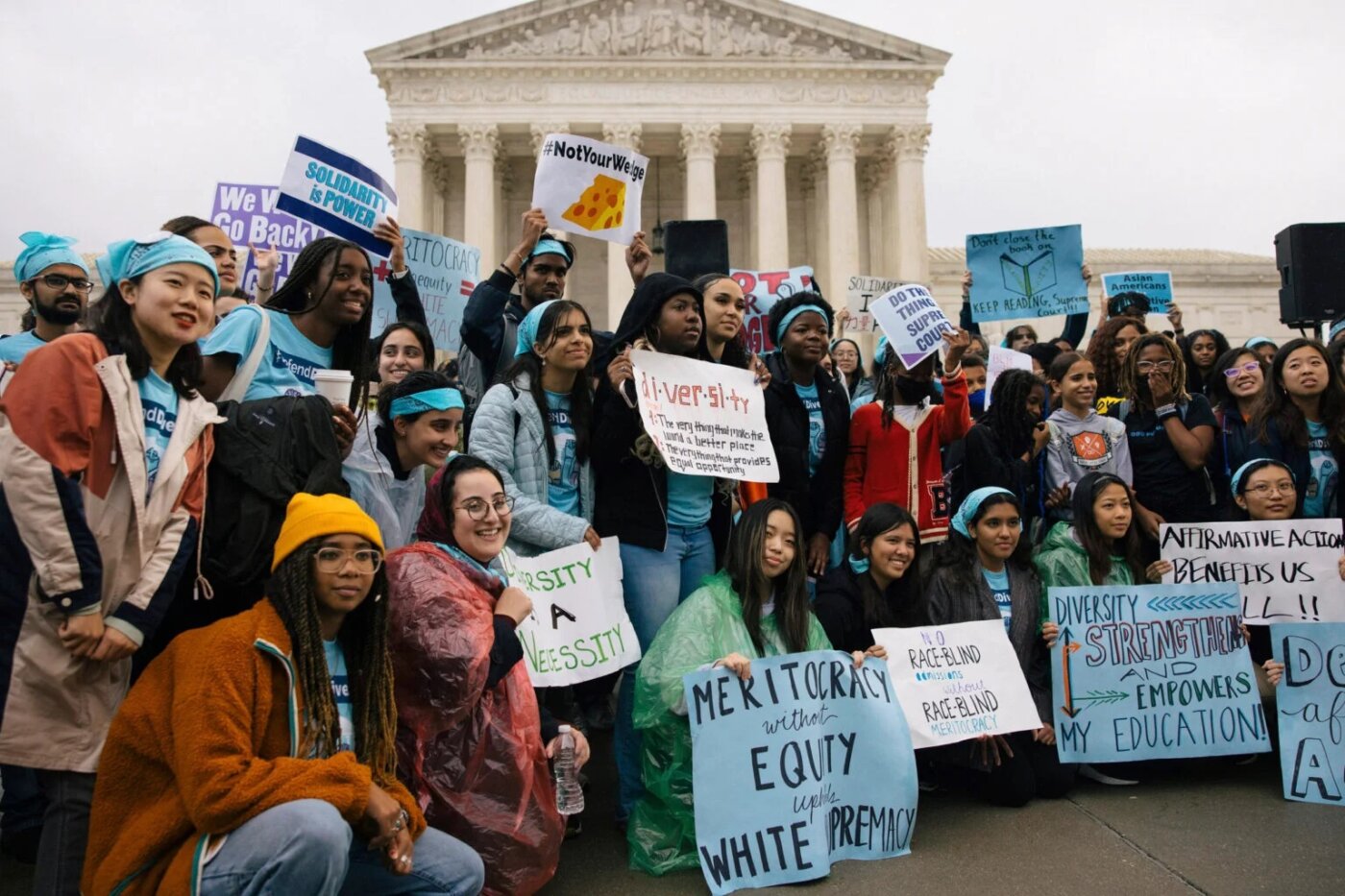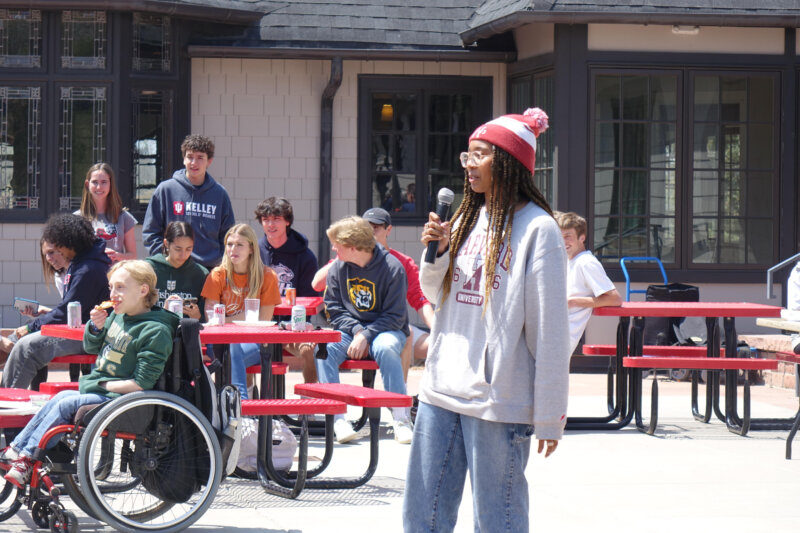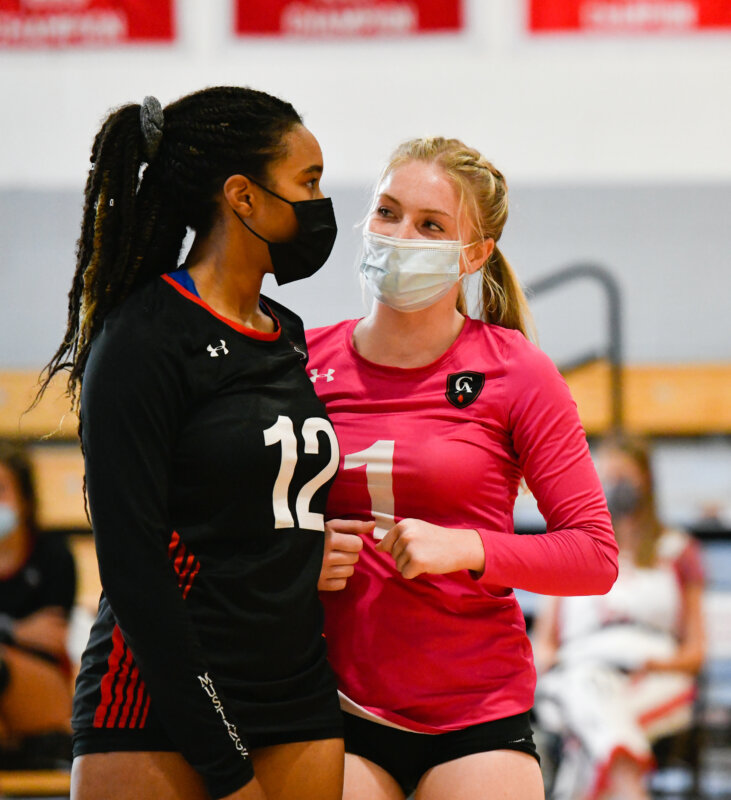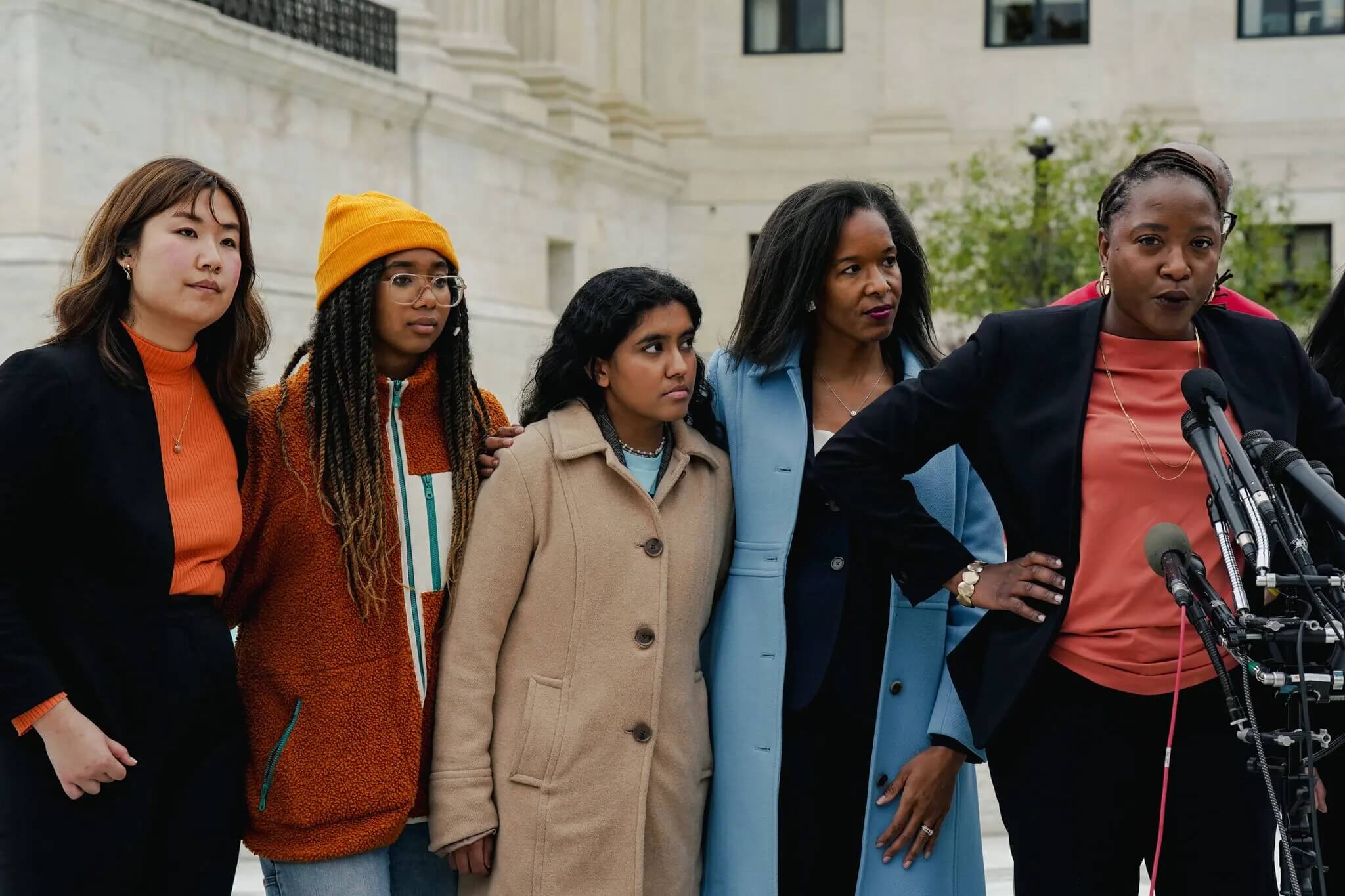When Jaden “JJ” Moore ’22 was accepted as a member of Harvard University’s Class of 2026 in her Senior year at Colorado Academy, she was stunned to encounter skepticism—even from classmates—about whether she “deserved” the honor of being among the approximately three percent of Harvard applicants who were accepted last year from a field of more than 60,000 aspiring high school students from all over the world. Doubters told her it must have been affirmative action that got her in the doors of the famously selective institution.

On the contrary, Moore was the kind of candidate that college admission offices dream of admitting. An academic, artistic, and athletic standout with a long track record of activism, in her Senior year at CA she was co-captain of the Varsity Volleyball team as well as the recipient of the Griggs Dayton Excellence Award in Chinese. “I knew it wasn’t because of affirmative action that I got into Harvard,” Moore recalls.
But the moment had opened her eyes to the value of race-conscious policies in the admission decisions of institutions like Harvard.
Moore’s incoming class at Harvard is the most diverse in the university’s history, with almost 60 percent self-identifying as people of color. Harvard’s President, Larry Bacow, has said, “When Harvard assembles a class of undergraduates, it matters that they come from different social, economic, geographical, racial, and ethnic backgrounds. It matters that they come to our campus with varied academic interests and skill sets. Research and lived experience teach us that each student’s learning is enriched by encountering classmates who grew up in different circumstances.”
“I got into Harvard because of what it is that I do, and who I am,” Moore asserts.
Defending 40 years of precedent
It was with her Harvard admissions experience in mind that Moore joined scores of other Harvard students, as well as hundreds more from other colleges and universities, to make their voices heard in Washington, D.C., on October 31, 2022, as the Supreme Court listened to arguments in two cases challenging affirmative action policies at Harvard and the University of North Carolina.
Both of the cases were brought by Students for Fair Admissions (SFFA), a group founded by Edward Blum, a conservative legal entrepreneur who has organized many lawsuits challenging race-conscious admissions policies. The Supreme Court has upheld affirmative action in college admissions in numerous cases, establishing 40 years of precedent affirming that race may be used as one factor among many in evaluating applicants. But now, it appears that an increasingly right-leaning Supreme Court may be willing to consider declaring race-conscious policies unlawful—a shift that Blum looks to capitalize on.
Such a change would be disastrous, according to Moore.
“Without affirmative action, my class could be one of the last diverse classes at Harvard,” she says. “And diversity itself is so important in helping students feel comfortable with who they are and in being able to see yourself do something amazing.”
Inspired to take action, Moore traveled to Washington with the Coalition for a Diverse Harvard, a Harvard alumni and student organization that has been working to improve diversity at the prestigious institution for three decades. The group, which Moore joined as an intern shortly after arriving at Harvard in the fall, was one of several that bused students to Washington to demonstrate their support for affirmative action.
On the steps of the Supreme Court, students held signs and cheered speakers from civil rights and affirmative action advocacy groups. Moore found herself at the center of the media attention focused on the student groups, and was seen in several widely distributed photos of the day, including an image in the New York Times.

“I have been involved in demonstrations in Washington before,” she says. A longtime participant in programs run by Jack and Jill of America, an organization that nurtures future Black leaders, Moore has helped to bring hundreds of young people to similar events. “But this time was different,” she acknowledges.
Media coverage of the protesting students was intense, and Moore was thrilled and awed to be part of the moment when a fellow Harvard student, Muskaan Arshad, another member of the Coalition for a Diverse Harvard, was asked to give a statement on national television.
Speaking without notes, the sophomore said race-blind admissions would have hobbled her application to Harvard. As an activist of color who wrote her application essay about growing up in Arkansas, “My whole story would not have been expressed without discussion of race,” she declared.
According to Moore, the remarks—and their powerful delivery by someone so young—floored the assembled reporters.
“I remember looking at Muskaan and how confident she was, and then turning towards CNN and all these other news organizations. Everybody dropped their notepads and looked up. She just grabbed everybody’s attention. That has stuck with me.”
A lasting influence

The impact of Arshad’s remarks reaffirmed for Moore the importance of her own engagement in activism—something that took root at CA.
“At an early age, I fell in love with Jack and Jill of America and its mission of improving the lives of children and future leaders, especially African Americans,” Moore explains. “CA gave me the chance to put what it is that I am passionate about into the world I was experiencing: I held conversations with students and teachers, I tried to promote a Black Student Association, and I worked on creating more chances for people to connect with others with similar backgrounds.”
Moore found support for her efforts among faculty, staff, and coaches. The Upper School course Race in America, taught by Elissa Wolf-Tinsman, gave her the opportunity to dive deeply into issues she was passionate about, and she collaborated with a fellow student on a final project that examined the experiences of Black business owners in the historically Black Five Points neighborhood of Denver.

Teachers encouraged her to travel to Washington, D.C., with Jack and Jill of America to speak with U.S. Senators and Representatives about the Crown Act, which protects against discrimination in schools and workplaces based on hair texture and hairstyles. Amazingly, just after Moore returned from that trip, Assistant Athletic Director Jon Hill came to her defense when, as a setter and co-captain on the CA Varsity Volleyball team, she was criticized by a referee for wearing her hair in long twists.
And in her Senior independent study, Moore worked with the CA Alumni Office to complete a project tracing the Black legacy at CA. She interviewed Black alumni about their experiences at the school, collecting their personal testimonies with the goal of developing empathy, understanding, and respect.
“Through it all,” Moore says, “CA helped me step outside of my comfort zone, speak up, and put what I believe in into action.”
